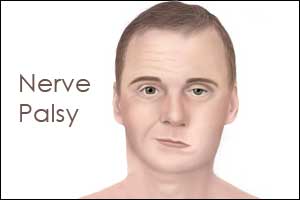- Home
- Editorial
- News
- Practice Guidelines
- Anesthesiology Guidelines
- Cancer Guidelines
- Cardiac Sciences Guidelines
- Critical Care Guidelines
- Dentistry Guidelines
- Dermatology Guidelines
- Diabetes and Endo Guidelines
- Diagnostics Guidelines
- ENT Guidelines
- Featured Practice Guidelines
- Gastroenterology Guidelines
- Geriatrics Guidelines
- Medicine Guidelines
- Nephrology Guidelines
- Neurosciences Guidelines
- Obs and Gynae Guidelines
- Ophthalmology Guidelines
- Orthopaedics Guidelines
- Paediatrics Guidelines
- Psychiatry Guidelines
- Pulmonology Guidelines
- Radiology Guidelines
- Surgery Guidelines
- Urology Guidelines
Ethylene glycol intoxication mimicking leptospirosis with acute kidney injury: a case report

Dr B. M. D. B. Basnayake at Department of Nephrology and Renal Transplant, Teaching Hospital Kandy, Kandy, Sri Lanka and colleagues have reported a rare case of Ethylene glycol intoxication mimicking leptospirosis with acute kidney injury. The case has appeared in the Journal of Medical Case Reports.
A 26-year-old Sinhalese woman was transferred from a local hospital with a history of reduced urine output, shortness of breath, reduced level of consciousness, abdominal pain, vomiting, and mild degree fever of 2 days’ duration. Her bilateral lower limbs were edematous but she was not pale or icteric. Her pulse rate was 112 beats per minute and blood pressure was 140/70 mmHg. An abdominal examination did not reveal organomegaly. Bilateral lower zone crepitations were noted on lung auscultation. Her respiratory rate was 20 cycles per minute and oxygen saturation was 97% on air. She had right-sided lower motor type facial nerve palsy. Glasgow Coma Scale was 13/15. The rest of the neurological examination including other cranial nerves and ophthalmoscope examination was unremarkable.
Our initial working diagnosis was leptospirosis with acute kidney injury and treatment was initiated accordingly (intravenously administered antibiotic and hemodialysis via femoral vascular catheter), but we could not explain the cranial nerve involvement. The following day she came out with the history of a suicide attempt in which she had self-ingested brake oil (amount not clear) after a conflict with her husband.
On admission, her renal functions were deranged with a serum creatinine of 352 μmol/ L, blood urea of 14.1 mmol/l, Na+ 140 mmol/l, and K 5.2 mmol/l. Arterial blood gas showed pH 7.08, partial pressure of oxygen (PO2) 94, the partial pressure of carbon dioxide (PCO2) 28, bicarbonate (HCO3) 13.8, and base excess − 18 mEq per liter. Her serum osmolality was 339 mosmols with an osmolar gap of 20 mOsm/kg and anion gap was 32 mEq/l. Although relevant, her urine was not examined for calcium oxalate crystals. Full blood count showed hemoglobin of 12.7 g/dl, platelet of 185 × 106/L, and white cell count of 15.2 × 106/L. Her C-reactive protein was 22 mg/dl. Her random blood sugar was 92 mg/dl. Her blood and urine cultures were negative. Her pro-calcitonin levels were within the normal range. A chest X-ray did not reveal any abnormality such as consolidation or pleural effusion. A non-contrast computed tomography (CT) scan of her brain was normal.
Leptospira antibody tested after 10 days of disease was negative. She was started on initial consecutive daily dialysis followed by every other day dialysis which yielded a considerable improvement in renal functions. After 10 days of hospital stay, she was discharged with residual facial nerve palsy. Over the course of 3 months’ clinic follow-up, she had complete renal and neurological improvement.
For more details click on the link: https://doi.org/10.1186/s13256-019-2139-z

Disclaimer: This site is primarily intended for healthcare professionals. Any content/information on this website does not replace the advice of medical and/or health professionals and should not be construed as medical/diagnostic advice/endorsement or prescription. Use of this site is subject to our terms of use, privacy policy, advertisement policy. © 2020 Minerva Medical Treatment Pvt Ltd